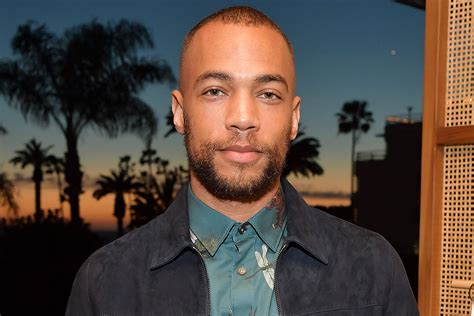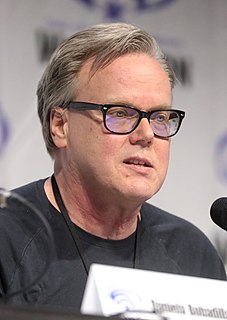A Quote by Wole Soyinka
I rarely use mythology for its own sake because, as a theatre person, the mythological figures are in fact humanity to the ninth degree and Yoruba mythology in particular has fascination of being one of the most humanised mythologies in the world.
Related Quotes
We must have a new mythology, but it must place itself at the service of ideas, it must become a mythology of reason. Mythology must become philosophical, so that the people may become rational, and philosophy must become mythological, so that philosophers may become sensible. If we do not give ideas a form that is aesthetic, i.e., mythological, they will hold no interest for people.
I think of mythology as a function of biology; the energies of the body are the energies that move the imagination. These energies are the source, then, of mythological imagery; in a mythological organization of symbols, the conflicts between the different organic impulses within the body are resolved and harmonized. You might say mythology is a formula for the harmonization of the energies of life.
Not the wretchedest man or woman but has a deep secretive mythology with which to wrestle with the material world and to overcome it and pass beyond it. Not the wretchedest human being but has his share in the creative energy that builds the world. We are all creators. We all create a mythological world of our own out of certain shapeless materials.
Mythology is not a lie, mythology is poetry, it is metaphorical. It has been well said that mythology is the penultimate truth--penultimate because the ultimate cannot be put into words. It is beyond words. Beyond images, beyond that bounding rim of the Buddhist Wheel of Becoming. Mythology pitches the mind beyond that rim, to what can be known but not told.
I always point out to my Passover guests that the Hebrews were not living in isolation. They were at the crossroads of several great, elaborate cultures with their own mythology and religion and art and architecture and cultural belief. In fact, so many of the mythologies of the world describe the same events, just from different points of view.
The gods in Yoruba mythology are not remote at all. They're benign, they're malign, they are mischievous, like Eshu for instance, tricksters, rascally, fornicators, that's a similarity to Greek mythology, for instance, you know. They're not saints, they're not saints. They're powerful. It's why they're not tyrannical. Of course, a number of them are also very, you know, benevolent, you know, there are saintly virtues to be found in them.
I have always been interested in mythology and history. The more I read, the more I realized that there have always been people at the edges of history that we know very little about. I wanted to use them in a story and bring them back into the public's consciousness. Similarly with mythology: everyone knows some of the Greek or Roman legends, and maybe some of the Egyptian or Norse stories too, but what about the other great mythologies: the Celtic, Chinese, Native American?




































